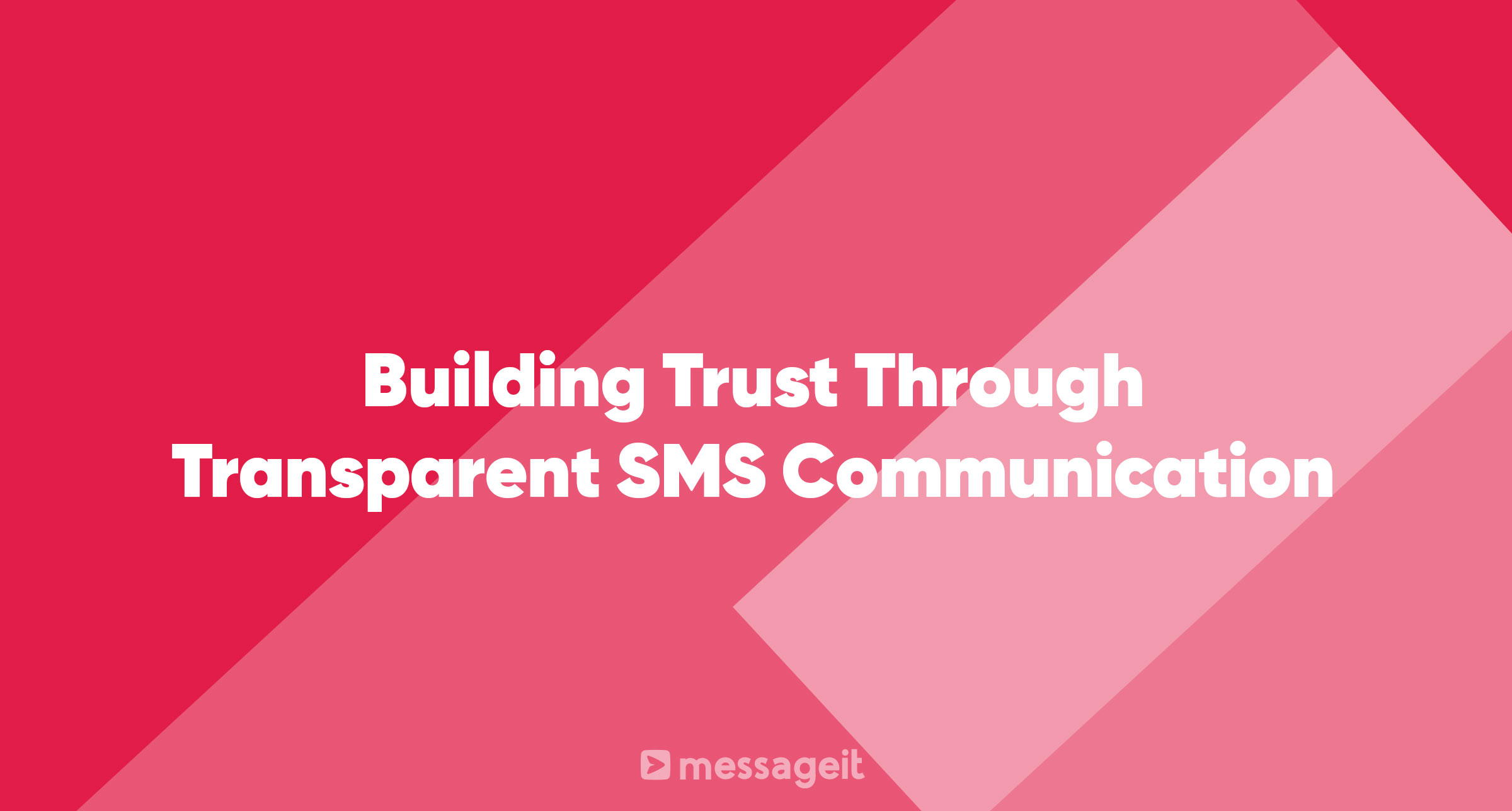In today's fast-paced digital age, trust is a currency more valuable than gold. With the myriad of communication channels available, one might think that the humble SMS (Short Message Service) has lost its charm. But, in reality, it remains a powerful tool for building trust, especially when used transparently. Let's dive into the world of SMS communication and discover how it can be a game-changer in fostering trust.
1. The Power of SMS
Before we delve into the nuances of trust-building, let's understand why SMS is still relevant:
- Ubiquity: Almost everyone with a mobile phone has access to SMS. It doesn't require a smartphone or an internet connection.
- Directness: SMS lands straight into the recipient's inbox, ensuring that your message doesn't get lost in the clutter of emails or social media notifications.
- Simplicity: With a limit of 160 characters, SMS forces us to be concise, making the message clear and to the point.
2. The Trust Factor
Trust isn't built overnight. It's a culmination of consistent efforts, transparent communication, and genuine intent. So, how can SMS help in this endeavor?
a. Personalization
Imagine receiving an SMS that addresses you by your first name and references a recent interaction you had with a company. It feels good, doesn't it? Personalized messages show customers that they're not just another number in a database. They're valued and remembered.
b. Timely Updates
Whether it's an update about an order, a service appointment, or a simple reminder, timely SMS notifications show that a business is proactive and cares about keeping its customers in the loop.
c. Two-way Communication
Modern SMS platforms allow for two-way communication. This means customers can reply to messages, ask questions, or provide feedback. When businesses actively respond to these messages, it fosters a sense of dialogue and trust.
3. Transparency is Key
Being transparent in SMS communication means being open, honest, and clear. Here's how to ensure transparency:
a. Clear Opt-in and Opt-out Options
Always ensure that your recipients have willingly opted in to receive SMS from you. And if they wish to opt-out, the process should be straightforward. This respect for their choice lays the foundation for trust.
b. Avoid Jargon
Your SMS should be easily understandable. Avoid industry jargon or complicated terms. The simpler the language, the more transparent the communication.
c. Set Expectations
If you're sending promotional messages, be clear about it. If it's an update or an alert, specify that. Setting the right expectations prevents misunderstandings and potential mistrust.
4. Best Practices for Trustworthy SMS Communication
To ensure that your SMS communication is always on point, here are some best practices to follow:
a. Limit Frequency
Nobody likes their phone buzzing with messages every hour. Limit the frequency of your SMS to avoid overwhelming or annoying your recipients.
b. Respect Privacy
Always keep personal data secure. Never share or sell phone numbers, and always ensure that your SMS platform is compliant with data protection regulations.
c. Be Relevant
Send messages that matter to the recipient. Irrelevant messages can be perceived as spam, eroding trust.
d. Measure and Adapt
Use analytics to understand how your SMS campaigns are performing. Are they being opened? Are recipients engaging? Use this data to refine your approach.
5. The Bigger Picture
Transparent SMS communication is just one piece of the trust-building puzzle. It should be complemented by transparent practices across all channels and touchpoints. Whether it's through email, social media, or face-to-face interactions, the principles of honesty, clarity, and genuine intent should always shine through.
Conclusion
In a world where trust can be fragile, transparent SMS communication offers a direct and simple way to foster it. By personalizing messages, providing timely updates, and ensuring clarity, businesses can use SMS as a powerful tool to build and maintain trust with their audience.
Remember, in the end, it's not just about sending a message; it's about sending the right message. And when done transparently, that message can go a long way in building lasting relationships.
